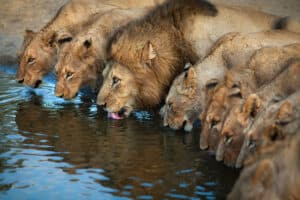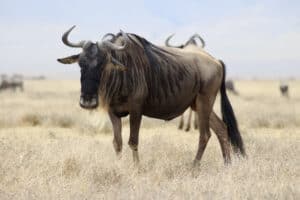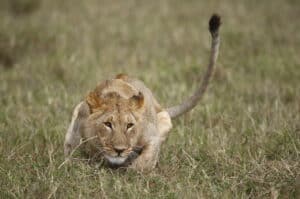Continue reading for our analysis...
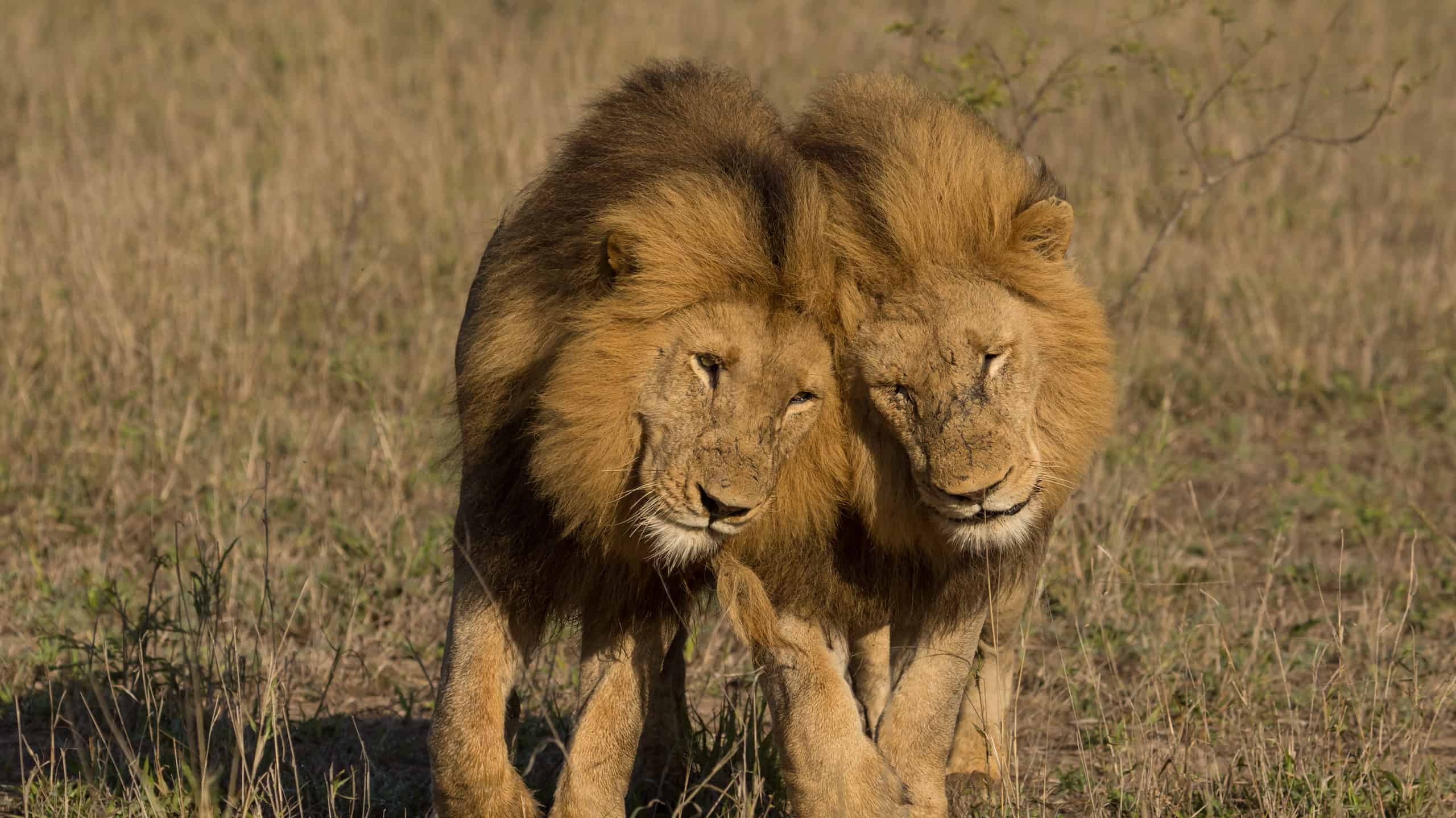
Experts agree that there is a certain etiquette when it comes to lion hunting. It is generally accepted that they are happy to cooperate during a hunt as that increases their chances of being successful. Male lions will hunt alone in pairs or in small groups. Female lionesses tend to hunt as a pride, and it is normally them that do most of the hunting whilst the males sit and watch.
Lions are not great at sharing what they eat; fights can break out once the prey has been caught. Usually, the lionesses will allow the males to eat first. Then they feed, and finally, the cubs have a go. The lioness in this clip, however, clearly didn’t get the memo! Or is something else going on here? Lion and Lioness Battle It Out for a Leopard!
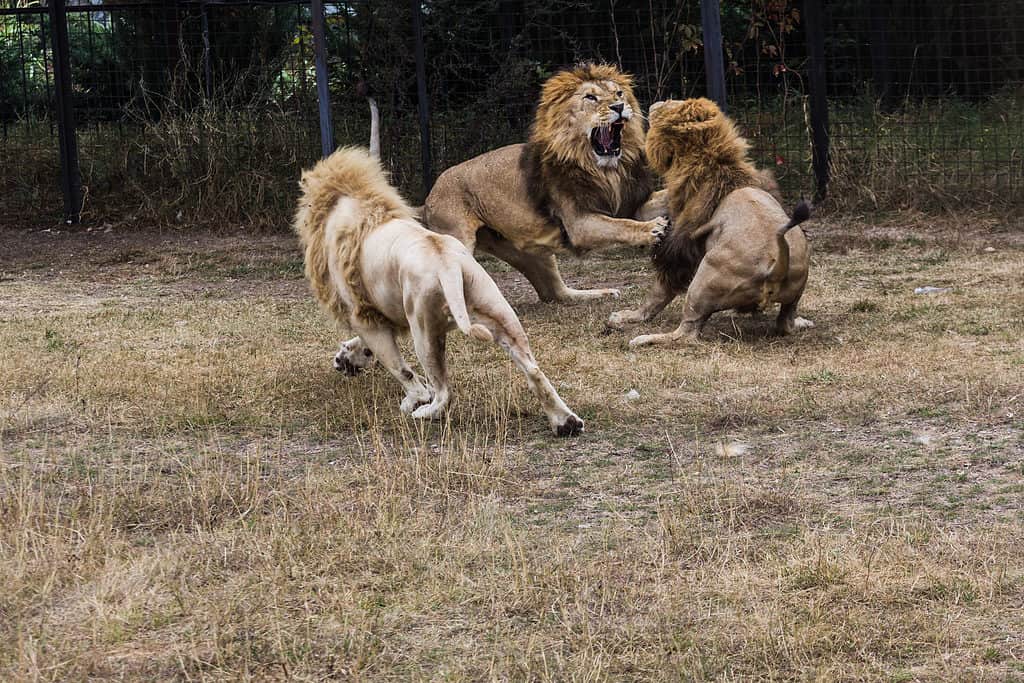
Male lions can hunt alone or in small groups.
©J_K/Shutterstock.com
This short clip begins with a male lion attacking a leopard that is lying on its back in the long grass. The lion is much bigger and towers over the smaller and slimmer leopard. The rest of the pride are pacing around, watching the action. Then, a lioness launches herself at the lion and pushes him backward and away from the leopard. As the male lion runs away, she turns sharply and delivers some warning roars toward two of her fellow females. We don’t get to see what happened to the leopard!
Relationship Between Lions And Leopards
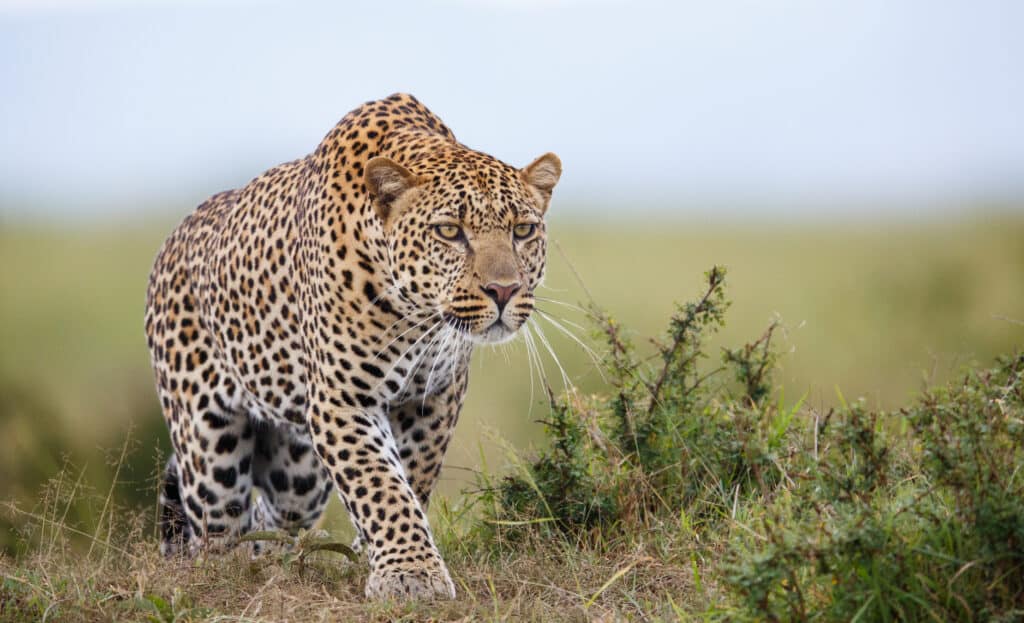
Leopards have to worry about lions attempting to steal their prey or occasionally attempting to place them on the menu.
©iStock.com/UrmasPhotoCom
Lions and leopards are both top predators at the apex of the food chain. As a rule, lions do not eat leopards. They are too much hassle to catch, and their flesh is not that nutritious for a lion. It is a much better plan to hunt a large herbivore like buffalo or zebra. However, if a lion were starving, it would be prepared to eat a leopard.
These two species are, however, in competition with each other, and so conflicts can arise. If the leopard had just caught some prey, the lions may be trying to get it off them and eat it themselves. The leopard, understandably, may not be very pleased about this. This may also explain the conflict among the lions. They often get into squabbles over food!
The Normal Behavior of Lions
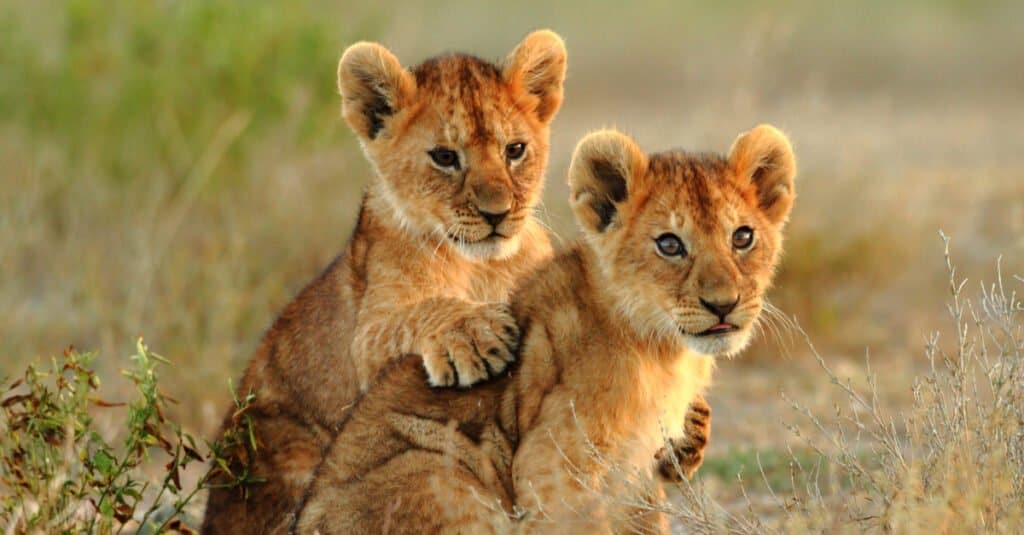
It is not common for lions to fight over food with members of their own pride.
©Theodore Mattas/Shutterstock.com
Lions are apex predators that live and hunt in prides. The pride is a family unit composed of a group of related females, their cubs, and one or two males. All members of the pride help to protect and care for each other. It is not uncommon for the pride to work together when hunting and defending their territory.
In terms of their behavior, lions are typically social animals. They often live in groups and communicate with each other through vocalizations, body language, and scent marking.
When it comes to food, it is not normal for members of a lion pride to fight over it. Instead, they usually hunt together and then share the food amongst the pride. In some cases, the older or more dominant lions may take the best cuts of meat for themselves, while the younger and less dominant lions may get the scraps.
Lions also have a tendency to rest and sleep after they have eaten. This is likely due to the need for them to conserve energy and digest their food.
In general, lions are usually peaceful and cooperative animals, and it is not in their nature to cause conflict or aggression. They are primarily focused on protecting their territory and caring for their pride.
Other Amazing Animal Videos You Might Like
It seems almost unbelievable. This mature lion and a lioness encounter a young buffalo, which has no clue whatsoever of the immense danger it is in. It is not only separated from its herd but is dangerously close to the two fearsome predators. It starts to run, and the hunt is on, to the excitement of watching photographers watching this wildlife documentary unfold right before their eyes.
Thank you for reading! Have some feedback for us? Contact the AZ Animals editorial team.



